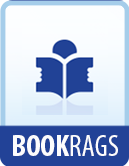Avoidance of mere mechanism cannot be too strongly insisted upon; for exercise for attaining a wholesome, natural guidance of mind and body cannot be successful unless it rouses in the mind an appreciation of the laws of Nature which we are bound to obey. A conscious experience of the results of such obedience is essential to growth.
XV.
ARTISTIC CONSIDERATIONS
ALTHOUGH so much time and care are given to the various means of artistic expression, it is a singular fact that comparatively little attention is given to the use of the very first instrument which should be under command before any secondary instrument can be made perfectly expressive.
An old artist who thanked his friend for admiring his pictures added: “If you could only see the pictures in my brain. But—” pointing to his brain and then to the ends of his fingers—” the channels from here to here are so long!” The very sad tone which we can hear in the wail of the painter expresses strongly the deficiencies of our age in all its artistic efforts. The channels are shorter just in proportion to their openness. If the way from the brain to the ends of the fingers is perfectly clear, the brain can guide the ends of the fingers to carry out truly its own aspirations, and the honest expression of the brain will lead always to higher ideals. But the channels cannot be free, and the artist will be bound so long as there is superfluous tension in any part of the body. So absolutely necessary, is it for the best artistic expression that the body should throughout be only a servant of the mind, that the more we think of it the more singular it seems that the training of the body to a childlike state is not regarded as essential, and taken as a matter of course, even as we take our regular nourishment.
The artificial is tension in its many trying and disagreeable phases. Art is freedom, equilibrium, rhythm,—anything and everything that means wholesome life and growth toward all that is really the good, the true, and the beautiful.
Art is immeasurably greater than we are. If we are free and quiet, the poem, the music, the picture will carry us, so that we shall be surprised at our own expression; and when we have finished, instead of being personally elated with conceited delight in what we have done, or exhausted with the superfluous effort used, we shall feel as if a strong wind had blown through us and cleared us for better work in the future.




